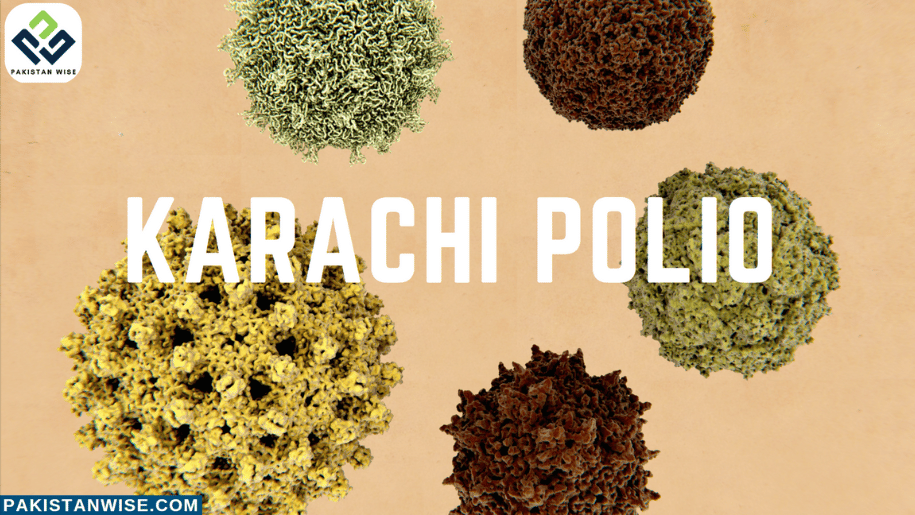In a worrisome turn of events, Karachi has recently reported the presence of the wild polio virus in an environmental sample obtained from Sohrab Goth Karachi. The sample, which was collected on May 15, is currently awaiting genetic sequencing at the Pakistan Polio Laboratory. This discovery marks the first identification of the wild polio virus in Karachi in 2023, with the previous positive sample being found in Landi back in August 2022.
Sewage water samples play a critical role in evaluating the effectiveness of polio campaigns and serve as an indicator of declining immunity levels among children in the area. This, in turn, puts them at an increased risk of contracting the disease. To enhance surveillance in high-risk areas, the Pakistan Polio Program has been collecting additional sewage samples from multiple sites. Additionally, they conduct tests at 114 fixed environmental locations across the country every month.
The detection of the wild polio virus in the environmental sample highlights the need for continued vigilance and comprehensive preventive measures. The Pakistan Polio Program remains committed to eradicating polio from the country and is actively working to strengthen surveillance systems in order to promptly identify and respond to any potential outbreaks.
Efforts to combat polio in Pakistan have been ongoing for years, with significant progress achieved. However, the recent detection of the wild polio virus in Karachi serves as a reminder that the battle against this debilitating disease is far from over. It underscores the importance of continued vaccination campaigns, community engagement, and surveillance measures to ensure the protection of vulnerable populations, particularly children.
The Pakistan Polio Program urges parents and caregivers to prioritize the vaccination of their children against polio. Vaccination is the most effective way to safeguard children from this crippling disease and prevent its spread within communities. By ensuring that children receive all recommended doses of the polio vaccine, we can collectively work towards a polio-free Pakistan.
The identification of the wild polio virus in Karachi underscores the significance of ongoing research and genetic sequencing of environmental samples. This vital process will enable health authorities to track the transmission patterns of the virus, identify potential sources, and implement targeted interventions to contain its spread. Furthermore, it highlights the need for continued investment in laboratory infrastructure and expertise to enhance diagnostic capabilities.
In conclusion, the confirmation of the wild polio virus in an environmental sample from Karachi raises concerns about the declining immunity levels among children in the area. It emphasizes the importance of robust surveillance systems, comprehensive vaccination campaigns, and timely response strategies. By strengthening these efforts, we can move closer to achieving the ultimate goal of a polio-free Pakistan. Together, let us strive to protect our children and future generations from the debilitating effects of this disease.

